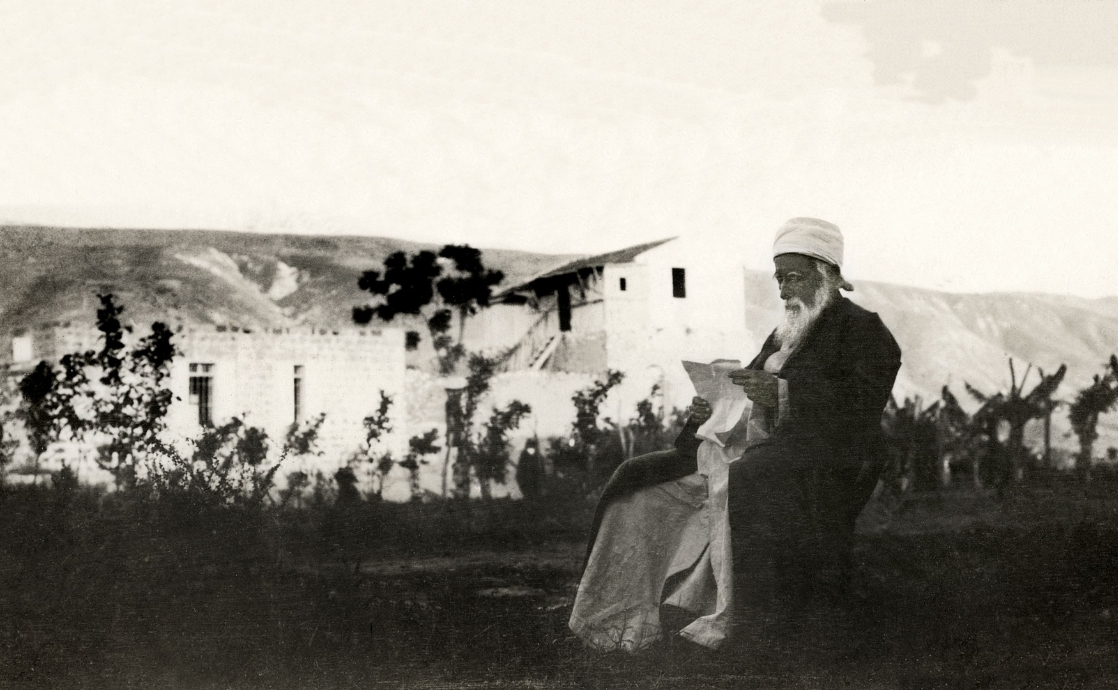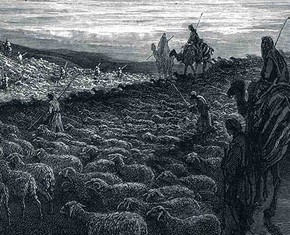The views expressed in our content reflect individual perspectives and do not represent the authoritative views of the Baha'i Faith.
When I read the Baha’i writings, they transport me, their unparalleled beauty uplifting my soul. How, my friend and I wondered, could we convey that sense of delight and wonder to others?
In pursuit of that objective, almost exactly a year ago Violetta Zein and I started the Utterance Project with the goal of cultivating an appreciation for the beauty of the Persian and Arabic in which the writings of the Bab, Baha’u’llah, and Abdu’l-Baha were originally revealed. Ultimately, we wanted to give our audience the necessary tools to engage with those original texts, and share their stunning wisdom and gorgeous prose.
We have attempted to do this by publishing simple videos – 56 and counting, as of this writing – of recitations of the Baha’i writings in the original Arabic or Persian, which are accompanied by on-screen text in those original languages, along with transliterations and English translations. In this way, we want to help our viewers make a gradual connection with the words they are seeing and hearing, so those words can settle deeply in their souls. Here’s a short example of the well-known “Remover of Difficulties” prayer from the Bab, which happens to be one of our most popular videos to date, and here is the prayer in English: “Is there any Remover of difficulties save God? Say: Praised be God! He is God! All are His servants, and all abide by His bidding!”
RELATED: Introducing “Waves of One Sea” – An Anthem of Unity in Diversity
With time, we found that some of our selections lent themselves to thematic curation. For instance, we developed a collection called “the Sovereign Remedy,” consisting of passages from the writings of Baha’u’llah that refer explicitly to the critical state of the world and mention the divine remedy for the ills which afflict it — namely, the unification of the world in one common faith. Here’s one example in English, and a link to it in the original language:
That which the Lord hath ordained as the sovereign remedy and mightiest instrument for the healing of all the world is the union of all its peoples in one universal Cause, one common Faith. This can in no wise be achieved except through the power of a skilled, an all-powerful and inspired Physician. This, verily, is the truth, and all else naught but error.
As we drew closer to the hundredth anniversary of the passing of Abdu’l-Baha on November 27, we realized that we would do well to commemorate this historic occasion through the Utterance Project in some way. Eventually, we decided to create a new collection, “the Centenary Collection,” an ongoing series of carefully curated selections (soon culminating in 21 of them) comprising passages from various Baha’i writings. Those selections primarily feature the writings of Abdu’l-Baha, but also contain certain passages from Baha’u’llah that make special mention of Abdu’l-Baha, such as the Tablet of the Branch and others.
Beyond highlighting the station of Abdu’l-Baha in this way, we also wanted to choose passages that had a distinct beauty to them in the original language. A shining example is Abdu’l-Baha’s Tablet of Visitation written in honor of Thomas Breakwell, the first Englishman to become a Baha’i, shortly after he died of tuberculosis at just 30 years old. The original Arabic text of this Tablet is almost entirely characterized by a rhymed prose that is simply mesmerizing, but inevitably lost in translation. You can see the video of this beautiful tablet here, and read it in Selections from the Writings of Abdu’l-Baha:
Grieve thou not over the ascension of my beloved Breakwell, for he hath risen unto a rose garden of splendours within the Abha Paradise, sheltered by the mercy of his mighty Lord, and he is crying at the top of his voice: ’O that my people could know how graciously my Lord hath forgiven me, and made me to be of those who have attained His Presence!
We actually got so immersed in the backstory of this particular writing of Abdu’l-Baha’s that my co-collaborator, Violetta, laid it out in an elegant but simple five-panel chronology, “The Spiritual Connection Between Thomas Breakwell and Abdu’l-Baha.”
RELATED: New Volume of Abdu’l-Baha’s Writings Released
Other selections in the Centenary Collection include passages from Abdu’l-Baha’s book The Secret of Divine Civilization, the compilation entitled Selections from the Writings of Abdu’l-Baha, and his first Tablet to the Hague. We recently published a recitation of a well-known prayer-poem of Abdu’l-Baha’s in Persian, translated earlier this year under the auspices of the Baha’i World Center. We plan to conclude the collection with two back-to-back releases: First, a weighty passage from Abdu’l-Baha’s Will & Testament, and then his Tablet of Visitation, which Baha’is often say in his memory. Our goal is to release these last two publications a few days before the centenary of the passing of Abdu’l-Baha on November 27, to give people a chance to incorporate it into their observances of that Baha’i Holy Day, if they wish.
We hope that you, too, will feel moved to use the videos in the Utterance Project collection to commemorate this special anniversary, or to strengthen your connection to the compelling beauty of Abdu’l-Baha’s writings.
















Comments
Sign in or create an account
Continue with Googleor